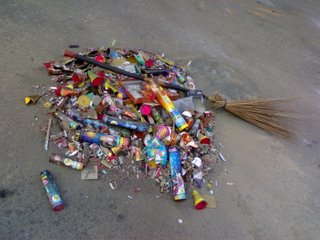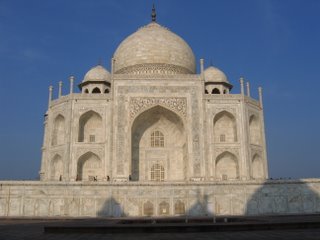
आग और राख में सिर्फ़ एक चिंगारी की फ़र्क होती है...
No, this isn't just a take on Saif's classic line in Omkara.
It's just a very basic look at what a spark can do.
Diwali came and went - like it does every year. In what can only be described as a miracle, a country where power shortages are commonplace, somehow found hidden reserves of energy to accomodate the millions of additional watts required to light up every God-fearing, neighbour-peering Hindu home's window and balcony (and, of course, all the rooms in case Santa Claus-like Goddess Lakshmi dropped in at night and couldn't see where to leave behind the wealth she was ordained to bring). Including the bathrooms, if you please.
Fireworks went off - like they do every year. Some people watched while others burnt cash; the more they burned, the happier they felt. Others jumped every time a cracker exploded (perhaps Diwali should be renamed 'Festival of Frights') and watched in awe as rockets lit up the October sky. The Goddess, evidently, isn't scared of all the explosions around Her.
There was, however, one difference: parents in their late 30s/early 40s were more keen to burst crakers than their children. Surprise, surprise! Here were eight-year olds educating their dads on pollution even as they had both ears plugged with little fingers hopelessly trying to drown out the cacophony of a thousand crackers going off. It does look like some institutions in Delhi like The Shri Ram School are winning the battle. Of course, there was also the wind that blew away pollution - or so said the weatherman.
But the fact is that a spark seems to have been lit. If these very children can continue resisting the temptation to out-burst their neighbours next year, we may see fewer sights like the one above of the morning after, outside a high-rise.
Until then, keep the faith. And don't let the flames of passion turn everything into ashes.
